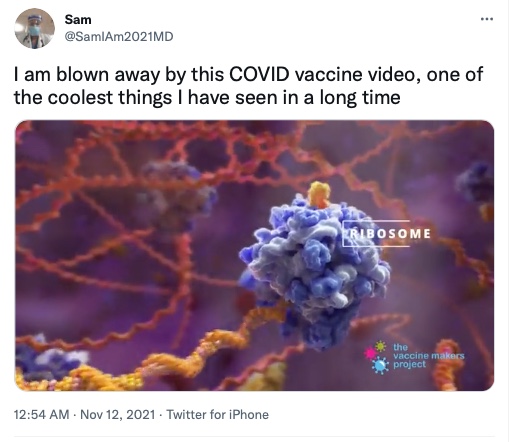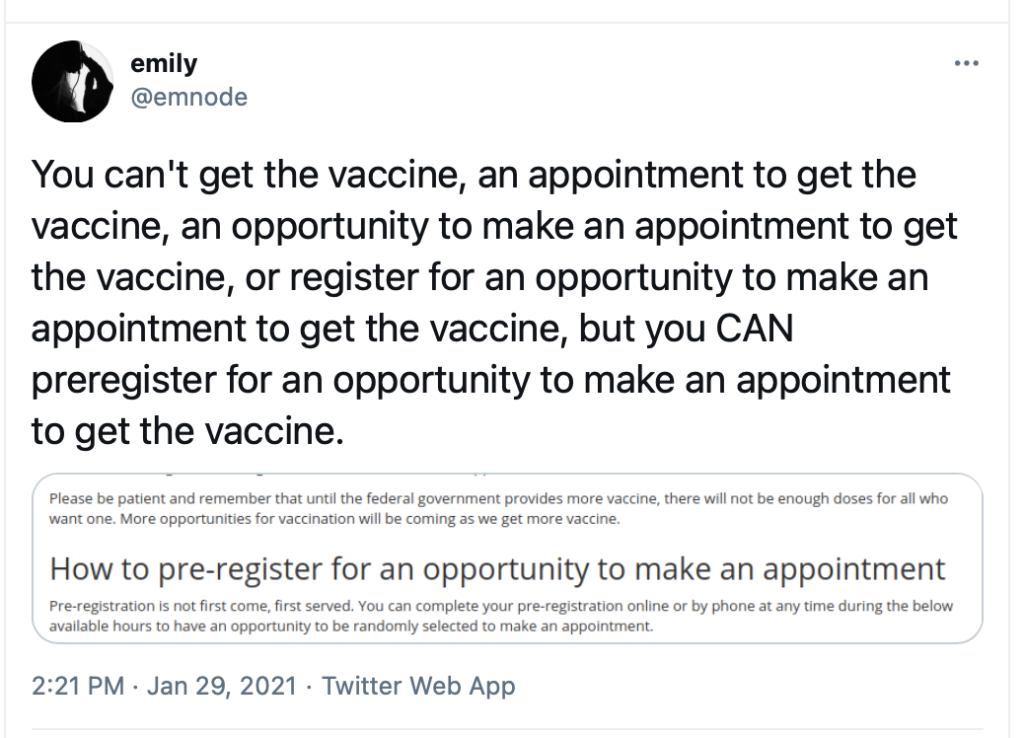The Experts are Now Certain that COVID Infection is Rare Via Surface Contamination
The evidence, we are now told, is strong that COVID infection through surface contamination is rare. How long now before we repurpose some of those surface sanitizers and double down on better ventilation? But not so fast . . .
Do you remember some of those early videos where doctors warned that we "must" wipe down all of our groceries with sanitizer or let them sit for three days? I know it was all well intended, but looking back, it is striking that this expert advice, like so much other advice we've heard from the "experts" on COVID and the economy, was delivered earnestly, confidently and (now we know) wrongly. In short, bad advice looks a lot like good advice. The experts rolled out for public presentations are always confident that they are correct. I suspect that this is the Dunning-Kruger effect in action.
That said, the following excerpt is from a Feb 2, 2021 article in Nature, "Coronavirus is in the air — there’s too much focus on surfaces: Catching the coronavirus from surfaces is rare. The World Health Organization and national public-health agencies need to clarify their advice":
A year into the pandemic, the evidence is now clear. The coronavirus SARS-CoV-2 is transmitted predominantly through the air — by people talking and breathing out large droplets and small particles called aerosols. Catching the virus from surfaces — although plausible — seems to be rare (E. Goldman Lancet Infect. Dis. 20, 892–893; 2020). Despite this, some public-health agencies still emphasize that surfaces pose a threat and should be disinfected frequently. The result is a confusing public message when clear guidance is needed on how to prioritize efforts to prevent the virus spreading.I'm still going to wash my hands after being in a public place. I'll do that because It's such a simple measure and there are other germs out there in addition to COVID, but I'll be doing it with increased suspicion that this effort is unnecessary. I'm also looking forward to getting a vaccine--I've registered with the City of St. Louis and with two hospitals, but I'm not a priority. I'll probably be waiting for many months. I hope anyone reading this has better luck with getting the vaccine . . .This lack of clarity about the risks of fomites — compared with the much bigger risk posed by transmission through the air — has serious implications. People and organizations continue to prioritize costly disinfection efforts, when they could be putting more resources into emphasizing the importance of masks, and investigating measures to improve ventilation. The latter will be more complex but could make more of a difference.
The Many Dangers of Loneliness
For months, I have been contemplating the destructiveness of the COVID pandemic, including the pain many people are feeling from loneliness. How dangerous is loneliness? Tonight I spotted this quote by Dr. Vivek Murthy:
During my years caring for patients, the most common pathology I saw was not heart disease or diabetes; it was loneliness. Loneliness and weak social connections are associated with a reduction in lifespan similar to that caused by smoking fifteen cigarettes a day and even greater than that associated with obesity. Loneliness is also associated with a greater risk of cardiovascular disease, dementia, depression, and anxiety. At work, loneliness reduces task performance, limits creativity, and impairs other aspects of executive function such as reasoning and decision making. For our health and our work, it is imperative that we address the loneliness epidemic quickly.
Brett Weinstein and Heather Heying Urge Further Scientific Investigation Regarding the Coronavirus “Lab Hypothesis”
I thought the lab hypothesis was debunked based on many articles I've seen over the months, but here are two people I respect (based upon their Darkhorse Podcast), Brett Weinstein and Heather Heying, suggesting that the lab hypothesis needs to be rigorously investigated because they've noticed more than a few red flags. They further argue that until now, the lab hypothesis has been debunked based on social stigma rather than scientific investigation.


